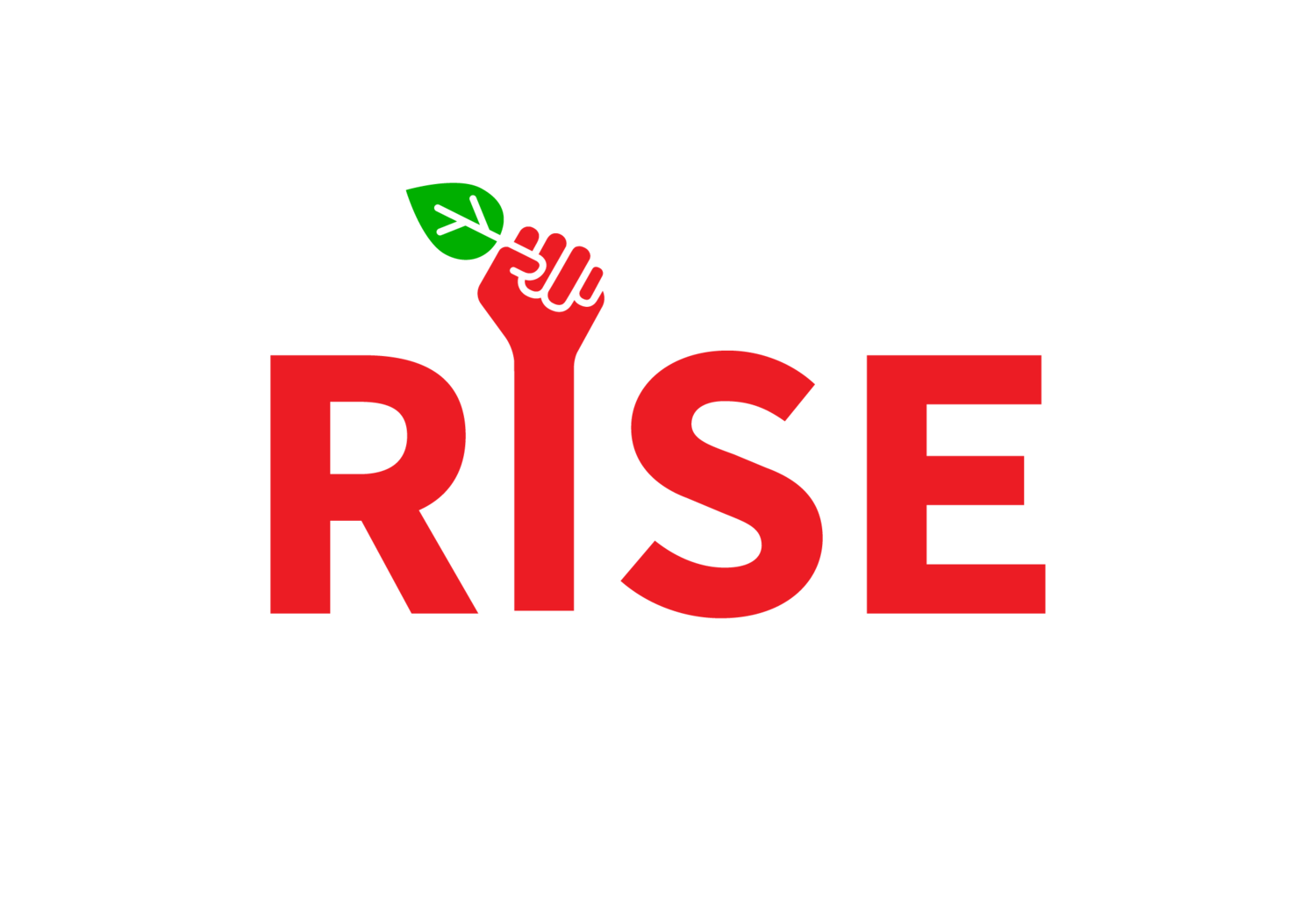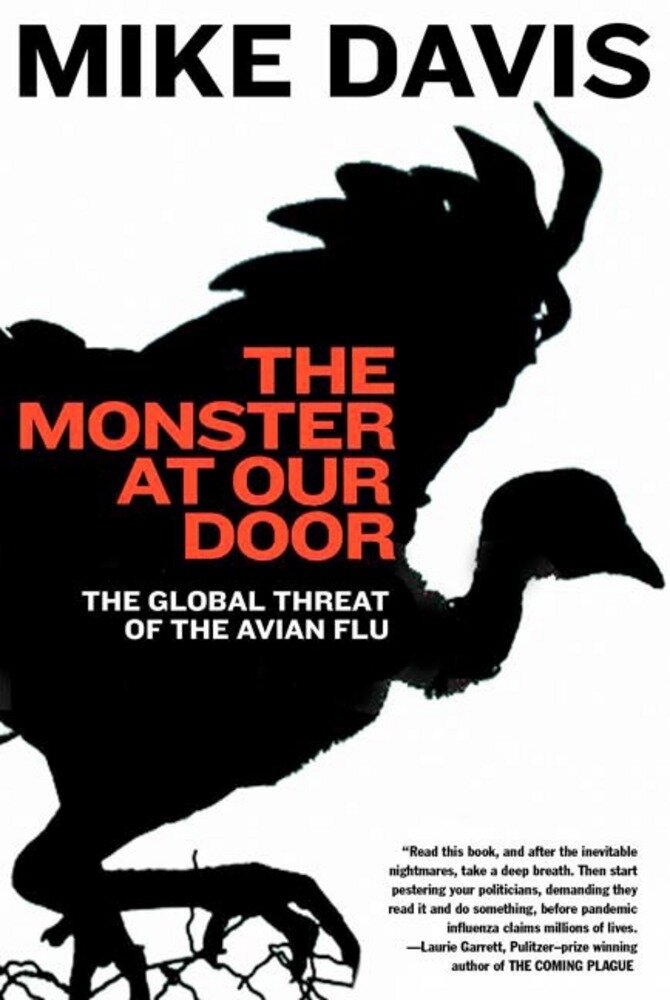Review: The Monster at Our Door
by Paul Murphy
Sales of pandemic-based literature have unsurprisingly rocketed in the last weeks. Copies of Camus’ ‘The Plague’, Stephen King’s ‘The Stand’ and Dean Kootz’ ‘The Eyes of Darkness’ are flying off online bookshelves as people seek some understanding of the terrifying situation we’re facing. Those seeking an explanation of the dynamics behind the coronavirus pandemic would be well served by reading Mike Davis’ well-researched ‘The Monster at Our Door’ published in 2005.
With daily developments dominating the mainstream media and our social media feeds, a sense of being overwhelmed by the horrors of the crisis is inevitable. Layers of mystification of capitalism are being stripped away by the cruel calculations of right-wing governments worldwide. From the Tory government’s advocacy of a ‘herd immunity’ strategy a few weeks ago to Trump’s now-abandoned suggestion that the US would re-open for business after Easter, the domination of profit is not hard to see.
However, Mike Davis, an urban theorist and socialist probably best known for his ‘Planet of the Slums’, provides a deeper understanding about the responsibility of the capitalist system in getting us to this point. Although the focus of his book is on the avian flu, he traces out the history of pandemics over the past hundred years from the so-called Spanish flu in 1918 to the ebola crisis and the avian flu, all extremely relevant for the age of coronavirus
Life in the evolutionary fast lane
He does a very good job of explaining the science behind pandemics in relatively understandable language. Like all living things, viruses evolve. Strains of viruses which maximise their spread are preferred by evolution. However, while animals evolve over millions of years, viruses live in what Davis calls evolution’s fast lane, evolving millions of times faster than that of their hosts.
One method of evolution is the annual change of its amino acids, or the genetic code upon which it moves around and replicates itself, which is why a different vaccine is needed for the seasonal flu each year. Another evolutionary leap is when a virus jumps from one species of animal to another, for example from a bird to a human. It achieves an ‘antigenic shift’ by either swapping genes with a variant of a virus already in a different species, or by mutating itself in such a way to make the transition. The other mechanism by which a new virus emerges is from recombination - which is just what it sounds like, effectively different virus species coming together to make a new virus. Although the exact origin of the current Covid-19 virus is not yet known, scientists have suggested that this new version of coronavirus emerged by making the leap from a non-human animal, perhaps a bat or a pangolin, to a human.
The era of pandemics
So far, so natural. Viruses exist in nature and deadly pandemics are possible. However, Davis convincingly argues that the environment shaped by human society has made serious virus outbreaks more likely. Effectively, the era of pandemics is a part of the anthropocene, a period in Earth’s history when human activity is the dominant influence on the environment.
Human activity under capitalism is organised on the basis of the private ownership of wealth and the drive for profit. It has driven the three factors which have combined to substantially increase the occurrence of pandemics: super-urbanisation of animal populations, deforestation and overfishing, and urbanisation in less developed countries.
Super-urbanisation of livestock is essentially the creation of massive factory farms, with dense concentration of animals. Davis reports one area of western Arkansas and northern Georgia, where more than one billion chickens are slaughtered for meat production annually! In this environment the virus can spread rapidly from animal to animal, dramatically increasing the rate of virus evolution.
Deforestation and overfishing have deprived populations of traditional sources of protein, pushing them to eat other non-domesticated animals, known as bushmeat. Having not lived in close proximity to human populations, as have cows, chickens, and other “farm animals” these animals have viruses that are unknown to our immune systems. Therefore, forcing people to search for other animal protein greatly increases the chance of a new virus making the leap to humans.
Davis refers to a study which illustrates the destruction of the local fishing industry in West Africa by super-trawlers from Europe. The result is an increase in the price of fish, placing it out of the reach of many local people. Fish has been replaced by ‘bushmeat’, with 400,000 tons of various wild animals now being eaten every year, increasing the chances of viruses making the leap from animal to human. It is now believed that this is how AIDS was transferred from a monkey to a human.
The development of huge slums, with high density of both humans and their pets combined with inadequate sanitation, also accelerates the evolution and spread of viruses. Davis specifically mentions southern China and Guangdong, a province south of Wuhan, as a potential pandemic crucible for this reason.
He also draws attention to pandemics’ devastating impact in poorer countries. The fact that every writer on the 1918 pandemic “noted its particular affinity for poverty, substandard housing, and inadequate diets” should cause alarm at this time. Unemployment was “as consistent a predictor of mortality as more conventional epidemiological factors such as persons per room density.” While the focus of most coverage has been on the advanced capitalist world, it is unfortunately highly likely that the neo-colonial world will suffer much higher mortality rates because of desperately underfunded health services.
Same old story
The other elements of the pandemic story are perhaps predictable for socialists - a pharmaceutical industry which only cares about the bottom line, and governments which are willing to lie and cover-up to protect profits of big corporations. The details Davis provides are striking, however, and in and of themselves are a strong argument for public ownership and workers’ control of the big pharmaceutical companies.
Effectively they have almost entirely neglected the development and production of vaccines, because they are simply not profitable enough. The worldwide sales for all vaccines from all pharmaceutical companies produce less revenue than Pfizer’s income from a single anti-cholesterol medication! These companies, which speak about the importance of intellectual property and patents so that they can invest in research, in reality invest only 11% of their revenue on research, while spending 27% on marketing. The irrationality of letting private profit determine what drugs are researched and developed is crystal clear.
Government cover-up, like during the 2003 and 2004 avian flu outbreak, is also a consistent feature. In Thailand, this was driven by the biggest agri-business company in Asia, Charoen Pokphand, known as CP. In order to protect their profits, the government colluded with CP to pay contract farmers to keep quiet about their infected flock, and sought deals to export the virus-laden animals.
Nor is this government failing limited to Asia. Davis outlines the effective destruction of public-health systems in the advanced capitalist world, above all in the US. Trump’s dismantling of a National Security Council unit focused on pandemic preparedness was just the icing on the cake of what was done by both Republicans and Democrats before him. Davis excoriates their focus on a hyped threat of bioterrorism, while overseeing cuts to public-health funding and a chronic shortage of vaccines and Tamiflu, an antiviral drug which would operate as a first line of defence against pandemic influenza.
Winds of change
As the horrifying consequences of this global pandemic become clear, more and more people will be looking for answers. Why did this pandemic take place? How were governments so unprepared? What could have been done differently to avoid the pandemic entirely or to mitigate its impacts? Davis’ book provides the information for socialists to answer those questions and demonstrate the culpability of the callous capitalist system.
Inspiring solidarity and action happening today, from General Electric workers staging a walk-out to demand their factories are converted to produce ventilators, to the community solidarity groups being established across Ireland, should give us confidence in the capacity of working class people to take control and organise society on a rational eco-socialist basis. A key task would be to heal the rift between nature and humankind caused by the capitalist system. That is necessary, not only to protect us from the threat of future pandemics, but also to avoid the impending climate catastrophe.

